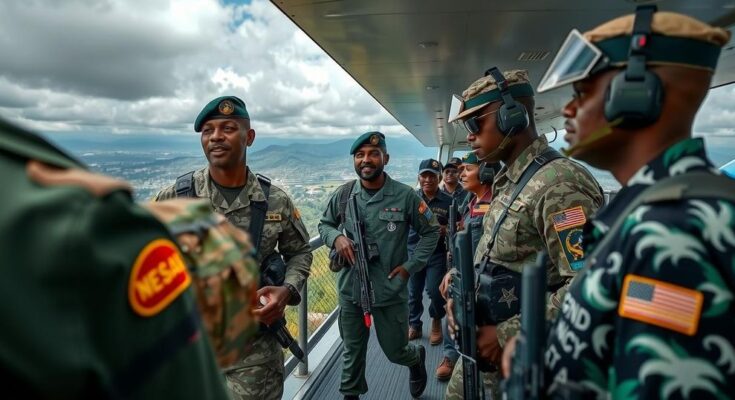Russia has sent 200 military instructors to Equatorial Guinea to enhance the security of President Obiang, indicating increasing Russian influence in West Africa. This move supports the regime’s stability as the president prepares his son for future leadership amid international scrutiny over corruption allegations.
Russia has deployed 200 military instructors to Equatorial Guinea to provide security for President Teodoro Obiang Nguema Mbasogo. This move highlights Russia’s expanding influence in West Africa. The instructors have reportedly been training local security forces in the two primary cities of the country, a significant oil exporter. American companies, having previously invested heavily in Equatorial Guinea, have since reassessed their operations in light of these developments. The presence of Russian military personnel further stabilizes the regime that has maintained power in Equatorial Guinea since 1979. President Obiang is preparing his son, who currently serves as vice president, to assume future leadership. This initiative is particularly aimed at safeguarding his son, who is under investigations for embezzlement and money laundering in multiple jurisdictions. Notably, President Obiang expressed his gratitude to Vladimir Putin during a visit to Moscow in September, acknowledging the support of Russian instructors in bolstering national defense.
The political landscape in Equatorial Guinea has been dominated by President Teodoro Obiang Nguema Mbasogo since he seized power in 1979. The country is renowned for its considerable oil reserves, which form a significant part of its economy. However, political corruption, human rights abuses, and allegations of financial misconduct against the ruling elite have prompted scrutiny from the international community. Russia’s increasing involvement in the region indicates its strategic interest in solidifying ties with African nations and countering Western influence.
In summary, Russia’s deployment of military instructors to Equatorial Guinea underscores a strategic partnership aimed at reinforcing the current regime under President Obiang Nguema Mbasogo. By ensuring the protection of the president’s son, who is being groomed as a successor amidst financial controversies, Russia solidifies its position in West Africa, potentially facilitating gains in regional influence while prompting shifts in international investment strategies.
Original Source: 112.ua




